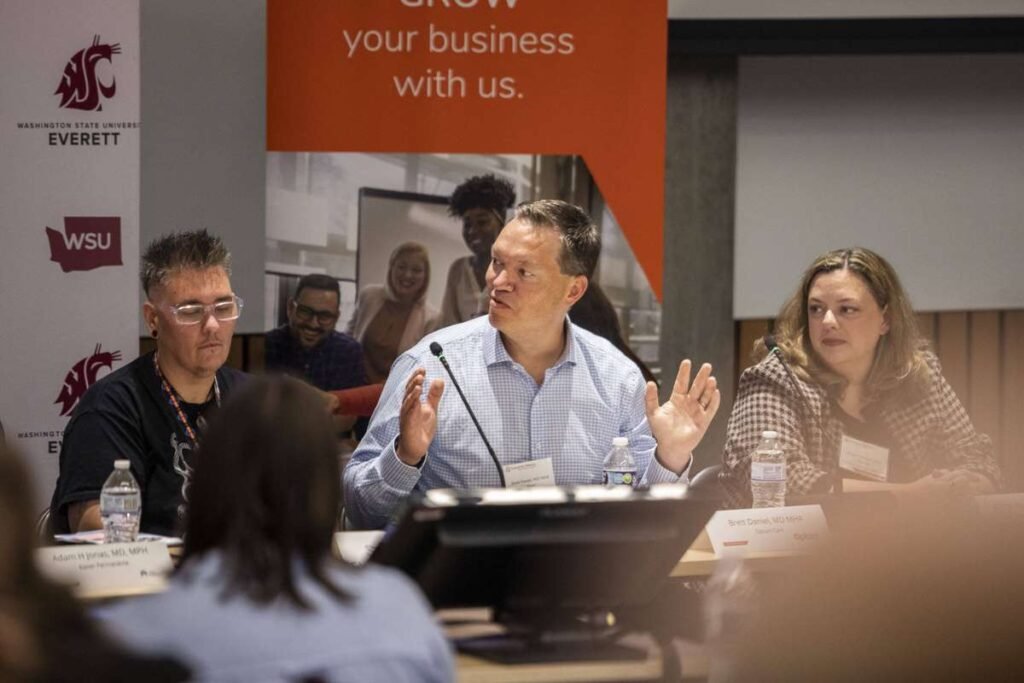Healthcare Leaders Unite to Address Equity Challenges In WSU Conference Highlights
WSU Conference States that Healthcare professionals, educators, and community advocates gathered virtually for Washington State University’s (WSU) sixth annual Health Justice and Belonging Conference. The event served as a platform for discussions on reducing health disparities, particularly in Eastern Washington.
One of the key contributors, the Empire Health Foundation, presented its strategic plan to improve healthcare access in underserved regions. The foundation’s president emphasized the significant role geography plays in shaping public health. He highlighted how environmental factors like land and water influence the well-being of local communities, stressing the necessity of ensuring equitable healthcare access across diverse populations.
Organized by WSU’s Elson S. Floyd College of Medicine, the two-day conference followed the theme “The Path Forward.” It brought together medical professionals, students, and community members for discussions on fostering inclusion in healthcare. Among the notable speakers were a former federal attorney and a representative from the Gates Foundation, as well as faculty members from the College of Medicine.
Conference as a Hub for Collaboration and Knowledge Sharing
Brayden Dini, an assistant in the Health Sciences Pathway program at WSU Conference , underscored the event’s role in fostering collaboration. He described the conference as a bridge between the healthcare sector and communities, providing a space for professionals and local stakeholders to exchange ideas and discuss health justice initiatives.
Discussions at the conference covered strategies for promoting inclusive healthcare practices. A key theme was the importance of community engagement in creating equitable healthcare solutions. One speaker pointed out that building strong, inclusive communities requires broad participation and a commitment to listening to diverse perspectives. Acknowledging the variety of viewpoints on public health priorities, he emphasized the need for collaboration among all stakeholders.
A WSU College of Medicine associate dean also spoke on the conference’s practical outcomes. He noted that participants should leave the event with access to new resources, stronger professional relationships, and data that could help inform collective action in addressing healthcare disparities.
Tribal Health and Justice Disparities Take Center Stage
A major focus of the conference was the state of healthcare within tribal communities. Speakers examined systemic challenges that continue to create health inequities in Indigenous populations. One expert, addressing justice-related concerns, highlighted the significant disparities affecting these communities.
A University of Washington professor provided insight into the broader implications of healthcare sovereignty. He emphasized the necessity of shifting toward community-centered healthcare models, ensuring that policies are informed by the voices and needs of Indigenous groups. He stressed the importance of deep listening in policy-making, advocating for meaningful engagement rather than assuming solutions without proper consultation.
The discussions underscored the importance of reshaping relationships between healthcare providers and marginalized communities, highlighting the need for a more inclusive and community-driven approach to healthcare equity.









